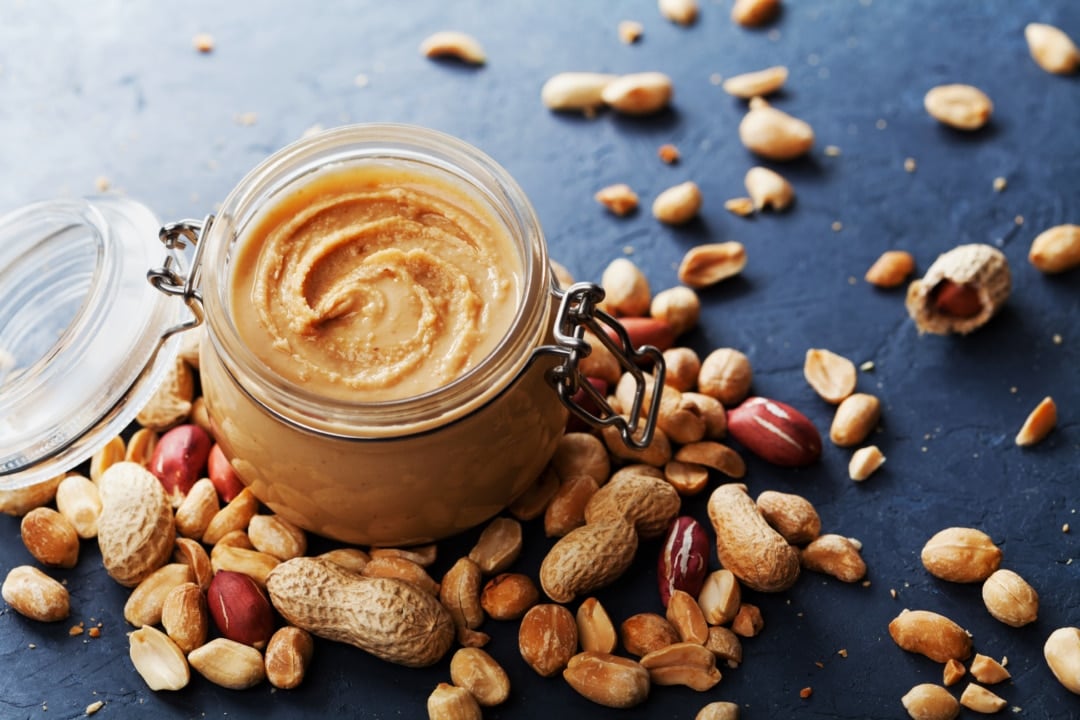10 Health Benefits of Asparagus & 3 Tips for Use

It comes in green, white, and even purple. Valuable vitamins, numerous minerals, and its low calorie count make it particularly healthy. We are talking about asparagus. Read on to find out about the benefits that asparagus has on your health as well as some useful tips on how to buy, store and prepare asparagus properly.
Asparagus soup, asparagus with hollandaise sauce or simply with butter – this long vegetable has a variety of uses in the kitchen. In addition to tasting delicious, it’s good for your health too.
Interesting Facts about Asparagus

Interesting Facts about Asparagus
The word asparagus comes from the Latin asparagus officinalis. "Officinalis" denotes a plant with medicinal uses. The vegetable belongs to the asparagus family and is widespread, especially in Eurasia and Africa.
Depending on the literature source, there is talk of 160 to 300 different species of asparagus. Some are even used as ornamental plants because of their beautiful flowers.
The most important species in economic terms is garden asparagus. This grows as a subshrub or herbaceous plant and the erect stems sometimes climb and have branches.
At the beginning of the season, asparagus grows about one centimeter per day, then from the middle of the season, it grows up to five centimeters a day. Asparagus only tastes bitter if it was cut too close to the rootstock during harvesting.
History and Development of Asparagus
The value of garden asparagus as a medicinal plant was acknowledged as far back as in Ancient Egyptian, Greek and Roman times. It was mainly used to support the liver, lungs and kidneys as well as to stimulate the metabolism.
Due to rising demand, asparagus started to be increasingly planted in our part of the world in the 16th century. At that time, it was mainly a dish for the rich. The terms white gold, imperial vegetable and edible ivory, used to refer to asparagus, also date back to this period.
For some inexplicable reason, the aristocratic vegetable later became a food for poor people, but then since the 19th century, the seasonal vegetable has started to be considered a delicacy once again. In fact, since asparagus made it onto the shelves in most supermarkets, it has even become one of the most expensive vegetables ever.
Variety of Asparagus: Green, White or Purple

Green, White and Purple Asparagus
Do you prefer white or green asparagus? Generally speaking, both varieties are very popular, and purple asparagus is slowly increasing in popularity as well. The different colors are a result of different growing methods.
Green asparagus get its color from chlorophyll. However, this plant pigment is only produced by exposure to sunlight. Therefore, green asparagus must be grown above ground. Because of the sun, green asparagus contains slightly more vitamin C, beta-carotene and substances which give it flavor. As a result, it has quite a strong taste and does not need to be peeled.
White asparagus is protected from the sun by the soil piled up around it and therefore remains white. This kind of asparagus is also more expensive due to this complex cultivation method. White asparagus has a particularly mild aroma and must be peeled at the ends.
Purple asparagus is produced when the tips break through the soil and the plant pigment anthocyanin turns them purple. There are now even special strains where all the spears and not just the tips are purple. The purple variety tastes a bit heartier and tangier than white asparagus.
Asparagus Nutrition Facts and Calories
So what exactly makes asparagus so healthy? The most important thing: it consists of an incredible 93 percent water. Nevertheless, asparagus contains many vitamins and minerals that are good for you. Take a closer look at the components:
| Components | Asparagus (100 grams) |
|---|---|
| Calories | 16 kcal |
| Water | 95 g |
| Total Fat | 0.2 g |
| Total Carbohydrates | 2 g |
| Protein | 1.9 g |
| Dietary Fiber | 1 g |
| Potassium | 203 mg |
| Calcium | 24 mg |
| Magnesium | 18 mg |
| Iron | 0.7 mg |
| Vitamin B1 | 0.11 mg |
For example, the potassium in asparagus lowers blood pressure and the calcium is good for our bones and teeth, but these are by no means all the health benefits of asparagus.
Green asparagus contains more vitamin C, among other things. Nevertheless, the difference in the ingredients of all three varieties is minimal. Therefore, the green, white and purple kinds of asparagus are all considered extremely healthy.
Health Benefits of Asparagus

Health Benefits of Asparagus
As mentioned above, the botanical name of asparagus refers to a plant used for medicinal or remedial purposes. This name says it all – the many different nutrients in asparagus can have a positive effect on the whole body.
The various substances the vegetable contains have an antimicrobial and anticarcinogenic effect, and can lower cholesterol too.
Asparagus Benefits for Urinary Tract Infections

Asparagus Benefits for Urinary Tract Infections
Asparagus can help in the event of a urinary tract infection, as its aspartic acid has a diuretic effect.
This amino acid helps to metabolize breakdown products containing nitrogen, converting them into non-toxic urea, which is excreted through the kidneys.
The excretion of urea simultaneously flushes out the pathogens responsible for urinary tract infections.
Asparagus Benefits Digestive Problems
Asparagus is also good if you have intestinal problems. The multitude of dietary fibers and phytochemicals in asparagus stimulate digestion, and a well-functioning digestive system means that the intestines are doing what they are supposed to.
The fiber inulin also strengthens gut flora, and folic acid and vitamin C stabilize intestinal mucosa.
Asparagus Benefits during Pregnancy

Asparagus during Pregnancy
The folic acid in asparagus is not only good for the gut, but it is also recommended during pregnancy. Folic acid is essential for pregnant women because it promotes healthy cell development in unborn babies.
If cells cannot divide correctly and form new cells, this can lead to malformations in the unborn baby. If you eat 500 grams of asparagus, you are already covering about half of the daily recommended amount of folic acid.
Spinach and pistachios are also beneficial during pregnancy
Asparagus Benefits Your Muscles and Nerves
Potassium and other minerals in asparagus boost nerve and muscle activity in your body. For example, potassium is especially important for ensuring that signals are properly transmitted. In addition to aiding transport processes, potassium can also lower blood pressure.
Asparagus for Weight Loss

Asparagus Benefits for Weight Loss
A diet is doomed to fail if it leaves you starving. Asparagus can help you lose weight as it is extremely low in calories, so you can eat a large portion of it without a guilty conscience. Additionally, the fiber in asparagus will keep you fuller for longer.
Asparagus is great in salads, but it can also be incorporated as part of your diet in a soup.
Asparagus Benefits the Detoxification of Your Body

Benefits of Asparagus for Detoxification
In fact, many people can benefit from the detoxifying effect of asparagus, not just those who want to lose weight. The large amount of urine you’ll excrete after eating the delicious vegetable means that toxins and waste products will be flushed out at the same time.
The ingredients in asparagus also detoxify the blood and support liver and kidney function. It’s not for nothing that many people swear by asparagus when it comes to home detoxification remedies and springtime body resets.
Possible Benefits of Asparagus for Your Sex Life
Ever since ancient times, asparagus has been said to be an aphrodisiac. Even though asparagus has a "phallic" appearance, there is no proof that it has an arousing effect.
However, it is said that the zinc contained in asparagus makes for a leaner body and stimulated mind. For many people, eating the vegetable also causes a sudden increase in their desire to make love. However, this effect is not (yet) biologically confirmed.
Benefits of Asparagus for Men

Benefits of Asparagus for Men
Although the aphrodisiac effect of asparagus has not yet been proven, its consumption has special benefits for the functionality of the male sex organ.
Due to the high potassium content, the consumption of asparagus helps to relax blood vessels, which leads to better blood circulation. Better circulation not only promotes a healthy heart, but it is also crucial for maintaining an erection.
Asparagus Benefits Your Bone Health
The magnesium and calcium in asparagus help to strengthen your bones. In addition, the protein the vegetable contains ensures that bone metabolism works well.
Asparagus Benefits Your Immune System

Asparagus Benefits Your Immune System
Asparagus is a real vitamin bomb and can prevent various diseases. This is, in part, due to vitamin C, which is important for a strong immune system.
The vitamin E in asparagus also has antioxidant properties, and the vitamin B1 has a positive effect on the nervous system. Plus, there’s plenty of vitamin B2 in asparagus, which your body needs to produce energy.
Is Asparagus Good for You?
In conclusion, asparagus is definitely good for you. Eating asparagus has health benefits for everybody, whether you’re a man or a woman.
Not only does it reduce the risk of urinary tract problems and help to keep your digestive system healthy due to the high fiber content, but asparagus also lives up to its reputation as a healthy vegetable by providing benefits for pregnant women with a high folic acid content. What’s more, its low-calorie count also makes it great for losing weight.
Asparagus detoxifies your body, promotes bone health and ensures a healthy immune system. It is even said that it can have a beneficial effect on your sex life.
As you can see, there are plenty of reasons why asparagus should be on the menu more often in the future.
Side Effects of Asparagus

Side Effects of Asparagus
Asparagus is generally considered easy to digest. Nevertheless, there are some people who would be better off not eating it.
These include, for example, those who have elevated levels of uric acid in their blood as they may be more prone to a gout flare-up. The purines in asparagus, which are broken down into uric acid in the body, are to blame for this. However, eating asparagus – in moderation – is considered safe even for gout sufferers.
People with kidney disease should also watch the amount of asparagus they eat. When kidney function is impaired, the level of uric acid in the body is usually permanently elevated. This, in turn, leads to various health problems. These usually include aching joints due to deposited uric acid crystals.
Whether you eat white, green or purple asparagus and whether you cook, bake or grill it, or prefer to eat it raw, garden asparagus is not poisonous.
Only the red berries of the asparagus plant are considered mildly poisonous and they can cause abdominal pain and vomiting, among other things.
Why Does Asparagus Make Your Pee Smell?
You’ve probably noticed that your urine smells a little different after eating asparagus. This particular smell is caused by the aspartic acid in asparagus, which turns into sulfur-containing substances when metabolized.
Sulfur makes urine smell – but not for everyone. This is because only about half of the human race has the enzyme that causes aspartic acid to break down.
Tips on How to Use Asparagus

Tips on How to Use Asparagus
Asparagus can be harvested from around the middle of April until the middle/end of June. The asparagus season is officially declared over on June 24, otherwise known as St. John the Baptist Day. This gives the plants enough time to regenerate until next year.
There are a few things to bear in mind when buying and using asparagus – read on to find out more.
Top Tips on How to Buy the Best Asparagus
When buying asparagus, you need to pay attention to three criteria – freshness, appearance, and how it feels when you touch it.
One of the ways you can tell that asparagus is fresh is when juice comes out of the end of the spear when you squeeze it. If the juice has an aromatic and not sour smell, everything is fine. The cut ends should not have dried out, nor should they have any grayish-yellow discoloration at all.
In addition to making sure that the ends are not discolored, you should check whether asparagus looks shiny and crisp. The heads of fresh asparagus should also be closed and firm.
When you touch asparagus, it should feel firm and plump, and it should not bend. A squeak test is a good way to find out if asparagus is really fresh – when you rub fresh asparagus spears together, they should make a squeaking sound.
In terms of quality, asparagus is divided into three different classes:
- Class Extra denotes the highest quality
- Class I corresponds to good quality, where asparagus may show slight lignification
- Class II describes asparagus that meets all the minimum requirements, but cannot be classified higher
How to Store Asparagus

How to Store Asparagus
Generally speaking, the sooner you eat asparagus after buying it, the better it will taste. However, if stored properly, it will keep in the refrigerator for up to three or four days.
Storing asparagus properly means wrapping it, unpeeled, in a damp cloth. This applies to all types. Green asparagus can also be placed upright in a glass of water and then stored in the refrigerator.
If you buy asparagus but want to enjoy it at a later point in time, you can freeze it for up to nine months. To do this, peel it and remove any woody ends.
You can then simply take it out of the freezer and add it to the pan or some boiling water – there is no need to thaw it beforehand.
How to Prepare Asparagus

How to Prepare Asparagus
Asparagus is especially popular in springtime. If you don’t want to eat it raw, there are numerous ways you can cook it.
For example, asparagus is perfect as a side dish to meat and it also cuts a fine figure in salads.
Waste not want not: you can also boil asparagus peel and use it as a basis for asparagus soup. This way, you have almost no waste.
Depending on the type of asparagus and how thick it is, the cooking time is about ten to twenty minutes. As soon as you can easily press the asparagus spears with a fork, they are ready to serve. To neutralize the slight bitter taste, you can add a little sugar to the cooking water.





